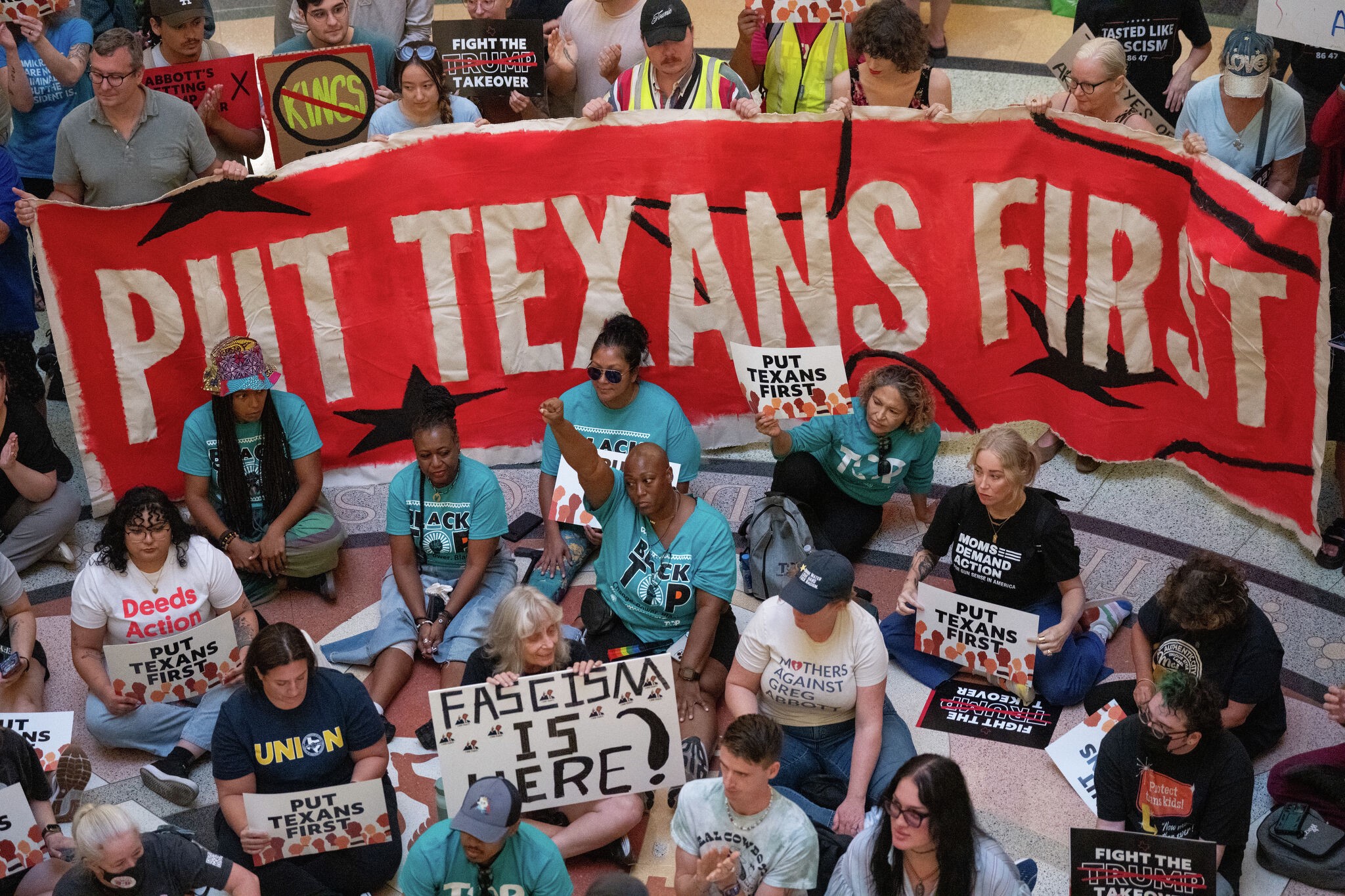politics
Texans sour on state leaders. How will they express it in 2026?
Economic unease and slipping approval ratings for GOP leaders mirror conditions that shook Texas politics eight years ago.
Published September 14, 2025 at 10:00am by John C. Moritz

Emerging from nearly nine months of legislative sessions and heading toward the 2026 midterm elections, Texans are in a bad mood with little appreciation for much of what state leaders accomplished and dwindling respect for the politicians in power.
Those are the findings of the latest poll by the Texas Politics Project, an ominous note for the state's ruling party. And the poll results look even more troubling when compared with those from a similar survey conducted nearly eight years earlier, when Republicans were gearing up for what turned out to be one of their worst election cycles since they consolidated their grip on Texas a generation ago.
The poll released Tuesday by the Texas Politics Project at the University of Texas, shows a gaping disconnect between what Gov. Greg Abbott, Lt. Gov. Dan Patrick and House Speaker Dustin Burrows had promoted as their top priorities for 2025 and what Texans identified as their chief concerns.
LaToya Forbins raises a fist as activists protest against mid-decade redistricting at the Texas Capitol in Austin, Wednesday, Aug. 20, 2025. Organizations gathered to demand that Gov. Greg Abbott and state representatives release Texas House Democrats confined to the House Chamber, pass flood relief and reject redistricting maps.
Mikala Compton/Austin American-Statesman
Let's look at some of the top lines from the poll of 1,200 registered voters, which was conducted Aug. 22-Sept. 1:
For all the noise surrounding the quorum-busting by Democratic House members and threats of fines and other sanctions by the GOP, fewer than one in eight respondents said redrawing the state's congressional boundaries to help President Donald Trump and the Republicans next year was the most important matter needing attention.
Even less enthusiasm was found for the so-called bathroom bill aimed at transgender Texans. Only 7% said that was the biggest task before lawmakers, despite the hours-long public testimony in legislative committees and numerous public demonstrations in and around the Capitol.
What about THC, the intoxicating hemp product that opened a public rift between Patrick, who wanted to ban in outright, and Abbott, who preferred regulation over legislation? Well, 96% of the poll respondents didn't see it as anywhere near the state's top concern.
What the public did want from the summer special session was for leaders to provide relief for people whose lives were upended by the July 4 flooding — along with measures to minimize the chances for a repeat in the next torrential downpour. Lawmakers did address both matters, which 82% in the poll said should have been Job One, but only after Republicans passed the redistricting bill that Abbott and Trump demanded.
The cost of food, housing and health care were also top concerns for Texans, but not so much for state decision-makers.
All this rolled together might explain why most Texans — 53% — are unhappy with the direction that state is going.
And that unhappiness appears to have trickled down to the holders of high office. Abbott, who's flush with cash and primed to run for an unprecedented fourth term as governor, has an all-time low 40% approval rating in the poll. Half of respondents disapproved of his job performance. Before lawmakers showed up for work in January, 55% of Texans said they approved of his performance and only 34% disapproved.
Patrick, who is also planning a fourth campaign to lead the state Senate, was also underwater in the poll: 30% approved, 42% disapproved.
Trump, who's not a Texan but is the only Republican ever to carry the state three times as a presidential candidate, saw his approval rate crater since winning back the White House in November with 56% of the state's votes. The poll showed his support in Texas down to 42%.
And that brings us back to the run-up to 2018, Trump's first midterm election as president. Back then, Democrats came within a whisker of taking two statewide elections — the U.S. Senate race and the one for attorney general — and they flipped a dozen Republican state House seats.
In the fall of 2017, a University of Texas-Texas Tribune poll showed Trump in slightly better shape than he is now, with 45% saying he was doing a good job.
Abbott and Patrick were less well known eight years ago, when they were gearing up for their first reelection campaigns, but their numbers were better — especially on the disapproval side. Only about 33% were unhappy with the governor and just 31% didn't care much for Patrick.
But perhaps the biggest worry for Texas Republicans heading into 2026 is the "better off/worse off" attitudes of voters compared with eight years ago. Then, nearly 70% of poll respondents said they were either better off or about the same economically compared with the year before.
In the most recent survey, Texas voters are more than a little edgy when it comes to the economy. Overall, 68% said they are about the same or worse off, and 25% said they're a lot worse off.
As a general rule, when voters feel like they are treading water at best, or moving backward at worst, they tend to look for someone to blame.

